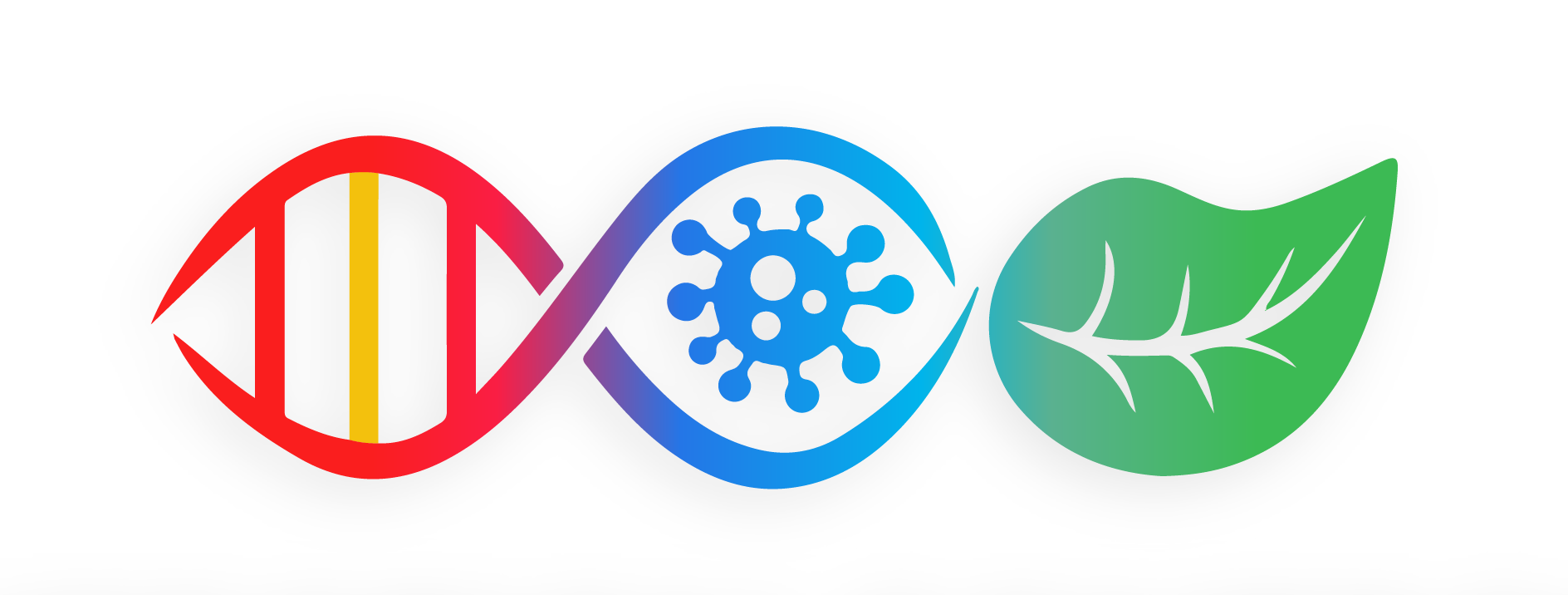- Trainer/in: Noémie Becker
- Trainer/in: Filipe Dias Vieira
- Trainer/in: Laura Krassini
- Trainer/in: Jingli Lao
- Trainer/in: Eliana Mor
- Trainer/in: Silke Robatzek
- Trainer/in: Oséias Rodrigues Feitosa Junior
- Trainer/in: Neysa Rodriguez Murillo
- Trainer/in: Robert Rollins
- Trainer/in: Alessa Ruf
- Trainer/in: Katarzyna Rybak
Biology is now a science of engineering. Only until recently, biology became mechanistic and quantifiable, identifying the molecular components and how they mechanistically work together to function in a certain process. This is because two revolutions in biology happened: 1) The molecular revolution, knowing with the genes and proteins as its basis; and 2) the genomic revolution, which allows to learn about the molecular components in a fast way and at a large scale. Biological engineering applies the engineering principles of “analysis, design and synthesis” to solve problems in human, animal and plant life.
The aim of this lecture is to familiarise students with the concepts, major breakthroughs, and applications in biological engineering. We will review and discuss the paradigm of engineering “measure, model, manipulate, and make” across different areas of biology, from tissue engineering to genetic manipulation to synthetic biology. We will highlight different applications of biological engineering, i.e. improving plant nutrition and photosynthesis, and exploring plants for molecule and vaccine production. While we focus on plant sciences, we will also discuss examples from other areas of the life sciences.

- Trainer/in: Filipe Dias Vieira
- Trainer/in: Laura Krassini
- Trainer/in: Jingli Lao
- Trainer/in: Silke Robatzek
- Trainer/in: Oséias Rodrigues Feitosa Junior
- Trainer/in: Neysa Rodriguez Murillo
- Trainer/in: Alessa Ruf
- Trainer/in: Katarzyna Rybak
This online course is a combined seminar and practical course. It is open for master and Phd students. The course is interdisciplinary and not linked to any module specifically.
Python is
one of many programming languages. Different than other it often uses English keywords
for coding than punctuation. With this freeware (open-source-basis) you are able to work quickly
and integrate systems more effectively.
In this course you will learn what the language “Python” is about.
Moreover, you practice how to write first scripts, how to define functions and how to use them. Additionally, in the practical part you will analyse genomic datas, use models and packages for gene analysis as well as visualize data frames.
IMPORTANT: It is required to have a laptop or desktop computer for this course. As this course includes online interaction. (The zoom sessions however could be performed via handhelds though.)
Preparation for seminar: 45 h
Course attendance: 7.5 h x 8 = 60 h
Writing final report: 7.5 h x 10 = 75 h

- Trainer/in: Finni Häußler
- Trainer/in: Korbinian Schneeberger
- Trainer/in: Sergio Tusso Gomez
- Trainer/in: Raúl Wijfjes
This online course is a combined seminar and practical course. It is open for master and Phd students. The course is interdisciplinary and not linked to any module specifically.
IMPORTANT: It is required to have a laptop or desktop computer for this course. As this course includes online interaction with a high-throughput server at the LMU, we cannot support handheld devices (e.g. iPads). (The zoom sessions however could be performed via handhelds though.)
- 01.11.-05.11. Preparation period for the pre-meeting
- 12.11. 3pm Pre-meeting (see Zoom link provided)
- 16.11. - 26.11. Course days incl. final presentation
- until 23.12. Finish projects and write report
The course will be held online via zoom. In addition the participants will connect to a compute server in the university.
Content
New high-throughput DNA sequencing technologies allow us to decipher virtually every genome we are interested in. This master course will teach the basic principles of data analysis and how to analyze genomic data in particular including hands-on experience.
- Learn the current genomic technologies, the data they generate, and how to analyze those
- Obtain skills on basic Linux commands
Workload
Preparation for seminar: 45 h
Course attendance: 7.5 h x 8 = 60 h
Writing final report: 7.5 h x 10 = 75 h

- Trainer/in: Finni Häußler
- Trainer/in: Korbinian Schneeberger
- Trainer/in: Sergio Tusso Gomez
- Trainer/in: Raúl Wijfjes
Course will start on the 1st of June 2021.
This is an advanced R course on 16S amplicon based metagenomic analysis. It is designed for master students in their second semester or above. The course consists of a practical and a seminar. The seminar will cover topics related to plant microbe interactions, community ecology, analysis of sequencing data, and ecological concepts.
In the practical you will be handed a dataset from a large experiment. You will learn how to deal with short read data in R, how to infer amplicon variants and how to assign amplicon variants to a taxonomic unit. You will then proceed to further analyzing microbial communities using more advanced statistics to draw ecologically meaningful conclusions. Finally, you will interpret and discuss your results with the other members of the course.
The course will be online only. There will be at least 1 mandatory online-meeting per day, seminar presentations will also be online.
- Trainer/in: Claude Becker
- Trainer/in: Niklas Schandry